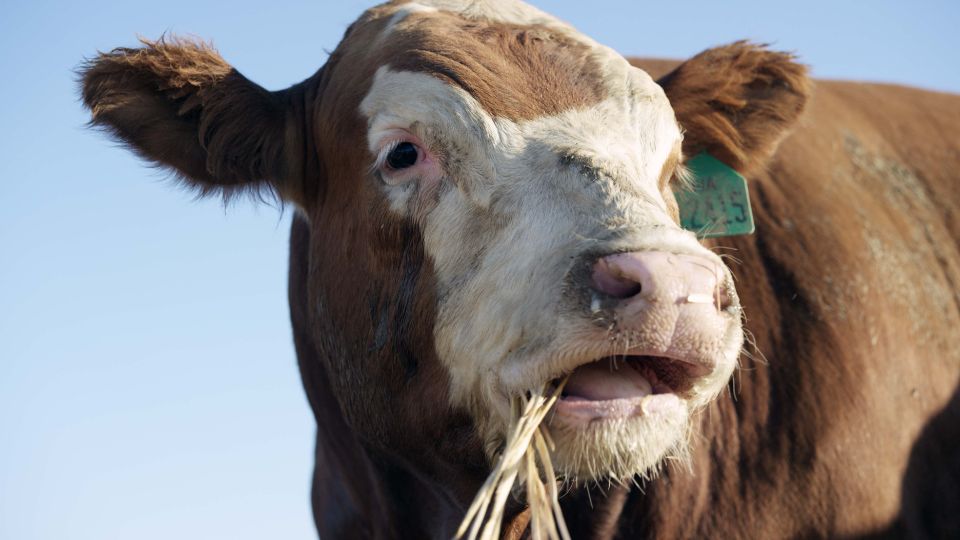
Agricultural News
White Paper Makes the Case of the Minimal Environmental Impact of U.S. Beef
Thu, 14 Nov 2019 06:01:41 CST
 A new white paper detailing the minimal environmental footprint of beef production in the U.S. was recently published by the National Cattlemen's Beef Association, a contractor to the Beef Checkoff. The white paper, authored by Sara Place, PhD, senior director of sustainable beef production research at the National Cattlemen's Beef Association, highlights why and how the U.S. is the leader in sustainable beef production. You can review the white paper by clicking or tapping here.
A new white paper detailing the minimal environmental footprint of beef production in the U.S. was recently published by the National Cattlemen's Beef Association, a contractor to the Beef Checkoff. The white paper, authored by Sara Place, PhD, senior director of sustainable beef production research at the National Cattlemen's Beef Association, highlights why and how the U.S. is the leader in sustainable beef production. You can review the white paper by clicking or tapping here.
Beef Greenhouse Gas Emissions in the U.S.
U.S. beef production, particularly when it comes to greenhouse gas (GHG) emissions, is often misrepresented with global statistics that fuel inaccurate reports and misconceptions. This new white paper addresses this issue by sharing the most recent data indicating that only 3.7 percenti of U.S. GHG emissions come directly from beef cattle.ii By comparison, globally, beef cattle account for 6 percent of GHG emissions.iii
To put U.S. beef production further into perspective, all of agriculture, including beef cattle and other animal and crop agriculture, accounts for 8.4 percent of U.S. GHG emissions.ii Comparatively, transportation accounts for 28 percent of GHG emissions in the U.S.ii On global scale, all livestock agriculture accounts for 14.5 percent of GHG emissions, which is often used inaccurately to represent U.S. beef emissions.iii
These variations can largely be attributed to different regional production practices. As the white paper notes, cattle production in the U.S., due to scientific advancements in beef cattle genetics, nutrition, husbandry practices, and biotechnologies, has one of the lowest beef GHG emissions intensities* in the world. In fact, GHG emissions intensity in the U.S. is 10 50 times lower than other parts of the world.iv
Improved Efficiencies
The white paper also details the results of improved efficiencies in beef cattle production in the U.S. during the past several decades. For example, compared to the mid-1970's, today the U.S. produces the same amount of beef with one-third fewer cattle.v Furthermore, the U.S. produces around 18 percent of the world's beef with only 8 percent of the world's cattle herd.vi These efficiencies are possible due to improved productivity practices, refined genetics, nutrition and scientific advancements.
In addition to more efficient cattle production, beef farmers and ranchers have dedicated themselves to being stewards of the land by focusing on preservation and enhancement of grassland ecosystems through responsible land management practices. As ruminants, cattle can convert plants with little to no nutritional value often found on these lands into a high-quality protein.
Continuous Improvement
Although the U.S. beef industry is the most sustainable in the world, there is still room for improvement. In addition to research and extension and adoption of new knowledge, beef farmers and ranchers have invested in a first-of-its kind lifecycle assessment to better evaluate sustainability achievements and opportunities across the entire beef lifecycle. The outcome of this rigorous assessment, conducted in partnership with USDA and set to be released in the first half of 2020, will be economic, environmental and social benchmarks the beef industry can use to set new goals and measure continued improvement.
"It is clear the U.S. is leading the way when it comes to sustainable beef production," said Place. "Not only are we producing more beef with less resources, but we are able to raise a high-quality protein while still caring for the environment. The beef industry takes pride in raising cattle sustainably, which is evident in its dedication to continued improvement."
To learn more about how U.S. beef farmers and ranchers raise beef responsibly- click or tap here.
WebReadyTM Powered by WireReady® NSI
Top Agricultural News
More Headlines...





